Bob Mould - Interview
by Paul Waller
published: 29 / 4 / 2013
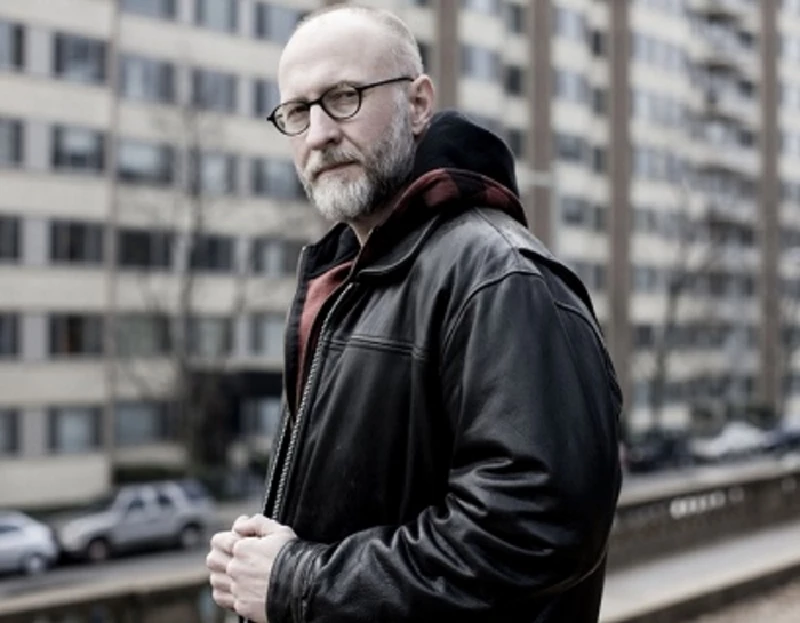
intro
Paul Waller talks to former Hüsker Dü and Sugar front man Bob Mould about his years in both bands, his recent autobiography and 'Silver Age', his much acclaimed latest solo album
Bob Mould began his musical career in 1979 when as a nineteen year old he formed the legendary Minneapolis punk rock group Hüsker Dü. Between then and their break up nine years late, the band developed their style from thirty second thrash workouts to producing some of the finest skewed rock music that the 80s bore witness too. If being in one legendary band was not enough Mould then formed Sugar, and found great success (especially in the UK) in the early 1990s as well. Their debut album ‘Copper Blue’ is still generally regarded as the greatest album to have been released in 1992, a year that also saw the release of REM’s ‘Automatic for the People’, Pavement’s ‘Slanted and Enchanted’, PJ Harvey’s ‘Dry’ and Sonic Youth’s ‘Dirty’. This was no small feat and thoroughly well deserved. It would seem that surely lightning wouldn’t strike three times for the same guy. Would it? Well, since Sugar’s untimely demise Mould has embarked on an incredible solo career. This has resulted in at least two albums that we here at Pennyblackmusic would consider classics and many other fantastic collections to boot. Don’t believe us? Hit YouTube and you’ll see. The most recent of these classics would be last year’s fine effort ‘Silver Age’. The record’s tone matches that of the abrasive guitar-ridden ‘Copper Blue,’ and added in with his recent work with the Foo Fighters this has once again shot Bob into the spotlight. Mould, who was speaking to us on the phone from the United States, gave us the lowdown on the new album, his autobiography and just what happened when he met up with punk legend Pat Smear. PB: The ‘Silver Age’ album has been out for a while now; when you completed it did you have any idea how popular the album would be if you returned to that guitar-saturated Sugar type of sound? BM: Well, I figured people would enjoy this record because I enjoyed making it immensely. I knew ‘The Decent’ was a pretty solid song and ‘Star Machine’ was a pretty cool song, but this whole response to the album, well, I am very happy with it. It had been a while since I had honed in on that type of album, I guess. I think everything that led up to the writing and the recording helped. It was all good stuff, the twenty year anniversary of ‘Copper Blue’ coming up, and taking 3 years away from writing music and the build-up that that created in my head. and having this goal of trying to write a short and loud guitar pop record. Plus all that stuff like hanging out with the Foo Fighters. All these things combined made it really easy for me to put the record together. PB: Watching the ‘Star Machine’ video was a joy from beginning to end. Your comedy timing was impeccable. How did that come about? BM: Jon Wurster [drums-Ed] is such a natural at that stuff, but for me it was like pulling teeth. The guy who put together the film is called Jon Glaser, and Jon is an American comic who has done a lot of TV. He had a show called ‘Delocated’ ,and now he’s on a show on NBC (one of our national networks) called ‘Parks and Recreation’. We started with a couple of ideas but Glaser really dialled it in the treatment. We shot it all in one day in New York and we tweaked it a little bit as we went, but it’s pretty much all Glaser’s idea. I knew that Jon Wurster would be great in front of the camera, so I was like, “Just make it about Jon.” He is the guy, so we went with our strong suit. It was pretty funny. PB: I’ve noticed from video interviews with you that you have a dry sense of humour and as I said your timing is great. Have you ever thought about doing a spoken word show like Henry Rollins does? BM: That’s funny you should say that. The closest I have gotten to that was in 2011 when the book was released [Bob and Michael Azerrad’s autobiography of Moulds life, ‘See a Little Light’], and I did a lot of touring to promote the book, and the format that I was touring in was playing solo and electric for a couple of songs then I would read a passage from the book. For instance, I would read the passage from the book from 1988 about being up on the farm in Northern Minnesota and writing ‘Notebook’ and then I might play four or five songs from ‘Notebook’. Then maybe I would jump to another era, and describe the process or the environment that I was in that allowed me to write these particular songs or albums. That is the closest I have ever gotten to spoken word. People that know me know that I can be a pretty funny guy when I want to be, but I just never let anybody see it (Laughs). PB: If there was an offer to do full spoken word, do you think you would take it seriously? BM: I think I’d hold out. I’d rather hold out for my own sitcom (Laughs). No, what Henry Rollins or Jello Biafra does is incredible. Hats off to what they do, as I could never do that. I can be funny in small doses. I don’t think a TV show or a spoken word performance would be good for me. PB: Going back to the new album now, can you tell us a little bit about the track ‘Keep Believing’? BM: Yeah, I can give you all the skinny on that one. It was one of the last songs that I wrote the music for, and the first part of the song remained pretty much as it is now. But I had this chorus that was sort of an awkward, clumsy chorus musically; I was trying to do too much with it. So when the three of us were doing the basic tracks for the album we looked at each other and said. “What do we do with that part?” Jon and I were in the room, and I started playing prototypical Bob Mould chord changes, and the part where that solo comes in, that ascending riff, the part before all the back end comes in, well, I just sort of threw it out there as a riff and Jon was like “That sounds good”. It turned out to be a really cool musical bridge that gets you from the front to the back. So I said just give me thirty seconds and I’ll just dial it in, so we dialled it in and got rid of the other part. When we dropped it in there it was like, “A-ha! That’s it!” It didn’t really need a chorus; it just needed that solo bridge to get it to the end of the song. So we had the music recorded, then fast forward two months and I’m working with my engineer, and we have the entire album mixed except for that song, and we only have one day left so we have to mix that song and afterwards write words for it (Laughs). I really have no idea; I know what I sort of wanted it to be, but… What happens with me, and I’m giving away a little secret here, is that I have these boxes of 45’s that I had when I was a kid, and I used to listen to them when I was five or six years old. I listened to them every day and memorised every stitch on them backwards and forwards, and whenever I am stumped I go back to that box of singles, and then I start playing music and something will happen. But we were in the studio and all my singles were at home, so I went on YouTube and started pulling up videos and finding these songs, and I pulled up this one song and I thought, “That’s it.” It triggered everything. After that, I spent half a day dialling in the words, and then the engineer was getting everything ready for me to sing over. By nine o’clock that night I had created this elaborate puzzle and tribute on the back end of the song about the Byrds and the Beatles, all those things that are the touchstones for me. I spent about an hour singing it, and we started piling on the harmonies for another hour. By 10 p.m. I had totally blown my voice, and spent the last couple of hours mixing the song. It was pretty crazy, but it’s such a beautiful song. With those words, I was floundering all day listening to old songs just to find a way into it, and then finally this one song just opened the door. PB: And the song? BM: (Silence). PB: Okay, was it those singles that got you into music in the first place or did you really discover the pleasure of music when you left home? BM: Oh, no, no, I was into music as a small child. My whole childhood was music. That was my escape from the life that I had. Those records that I am talking about, they kept me alive as a kid. I am looking at them right now as we talk. They are right there. The beauty of the book for me was that I know these things because that’s who I am, but I didn’t understand how woven together everything was, and we never know it unless we do take the time to sift through all of it. We can have a general idea that this led to this and that led to that, but in writing the book and this is where Azerrad was key was that he had that perspective from the outside of it all. He would say to me, “So you knew you were gay when you were five. You grew up in this violent household but you had this music that pulled you through. Okay look at what you did when you were 20?” How do you tell that story.How is it connected? PB: Do you think you gave too much away about yourself in the autobiography? BM: Oh, that’s fine. There are parts of the book that are unflattering to me. There are parts that show how out of my mind I could get, that I could be mean-spirited at times and show how controlling I was, but again go to the beginning and read those first two chapters and it will all make sense. You’ll see it. It’s not that it explains away all of my poor behaviour in my first 48 years of life and there is a lot of stuff that I am not really proud of in there, but it’s an attempt to tell the story as completely as possible. Those things had to be in there. PB: Did you revisit the Hüsker Dü back catalogue when you were researching the autobiography? BM: No, those songs are embedded in me, I don’t need to go back and put them on to relive them. I pretty much know how those records go. I understood going into the book that the allure for doing the book to the publishers was the Hüsker Dü story. It took up more of the book that I would have given it. If I were the King of France, I wouldn’t have done as much on that, but I understand and I understood it before I agreed to do the book so I have no complaints there. It was part of the deal. With all things being equal, then maybe that is the way things are supposed to be and that is how it is. There is no changing that. PB: I understand that you must be sick of answering Hüsker Dü questions especially after pretty much everything was discussed in the book, but one thing that wasn’t clear in the autobiography was whether you think that the creative and competitive dynamic between you and Grant fuelled the strong song writing in the band? Every Hüsker Dü release contained way more killer than filler. BM: Um… I think that that’s a major consideration. I tell you, when I look back on the whole thing I think that when the band was working as just us versus the world there was some amazing output, but when the band became us versus us it didn’t pay the same dividends. It begun as the three of us against the world, but when the world noticed us and they started observing that unspoken competition, and then when the light got shined on it, then that is when things started to go a little awry. So yes, it was the best of times, but it was also the end times. I really think that that happens in all parts of our lives, those dynamics with a significant other or with a work collaborator. It’s those things that you all know but you never say, and when other people pull at that thread it starts to unravel and it can get really fucked up. Sometimes I think that you should just let it be, and not try and unpack everything in your life all the time, and then maybe you’ll have this really happy life (Laughs). Also be mindful of letting people into your life who try and unpack your shit for you. Just say, “Wait a minute! We all know that. We don’t need to say anything about it”. PB: All recent interviews with you tend to focus on you meeting up with Dave Grohl recently and recording with him. That’s cool, but what interests me is that you met up with Pat Smear at the same time… BM: Yes! PB: How was that for you? Being a massive fan of the Germs, how did you two get on? What was he like? BM: Oh my god, well you know that Dave, he is like the sweetest guy in the world and I love Dave, and I am so appreciative of him letting me get a little bit of his spotlight for a brief moment. He didn’t need to do that but… Going down to his place to work on that song, and when I walked in and Pat was sitting there, I was just like “Oh my God!” I grew up with the Germs. That album was really important to me. I was like, “Well, yeah, this song we are working on is really great, but, Pat, what was it like working with Joan Jett? (Laughs)” Pat was like, “Huuuuh? That was a really great experience. And Butch Vig too. Butch and I worked together in Madison, Wisconsin in the original Smart studio back in 1984. I think it was recording a local band there called the Tar Babies, so we hadn’t really got together in ages. The whole thing was so great. There’s Pat from the Germs, and there’s Butch from the old days, and there is Dave… it was like, “Shit! This is pretty cool.” PB: I can’t imagine as a fan what walking into that room must have been like. Pat Smear, my word, he is such an iconic figure in my house. BM: Well, yeah, and then when I was out doing the dates with them in the fall of 2011 we hung out. You know how people run into each other at catering and backstage and so on, and Pat and I would just crack each other up. They had this kind of fancy espresso machine every day that showed up in catering and Pat wasn’t into it, so I said, “You have to try it. I have one at home and it’s awesome.” He’s always like, “Hmmmmm errrrrrr.” So anyways we had some dinner, and I said, “We’ll have a small bit of desert and then we can have a couple of coffees.” When he did it, he was like, “Holy shit, that stuff is so strong!” I said, “You are going to play for three hours. You’ll be fine (Laughs).” That’s the stuff right there, push button espressos. PB: Have you begun to put together a follow up to ‘Silver Age’ as of yet, and if so is it going to keep the same tonality? BM: I’m going to quit while I am ahead… Nah, I haven’t had a lot of time to think about it. All I know is that right now with Jason [Narducy, bass-Ed] and Jon we are killing it. We are really killing it live. We really like playing together, and it is effortless and natural, and I think that our interpretations of the Hüsker and Sugar stuff is pretty much spot on without sounding like a cover band. I think ‘Silver Age’ has shown what we can grow into as a three piece. The smart money says more of the same. So, we shall see but I can look back at my own history and I sometimes don’t play that sure bet, whether it’s ‘File Under: Easy Listening’ or ‘Modulater’. I know what I can do to my own stuff, so for now all I can say is that for now we are going to play some shows, have some fun and then write some songs and just see what happens. PB: Thank you.
Band Links:-
http://bobmould.com/https://twitter.com/bobmould
http://www.thirdav.com/
https://www.facebook.com/bobmouldmusic
Picture Gallery:-
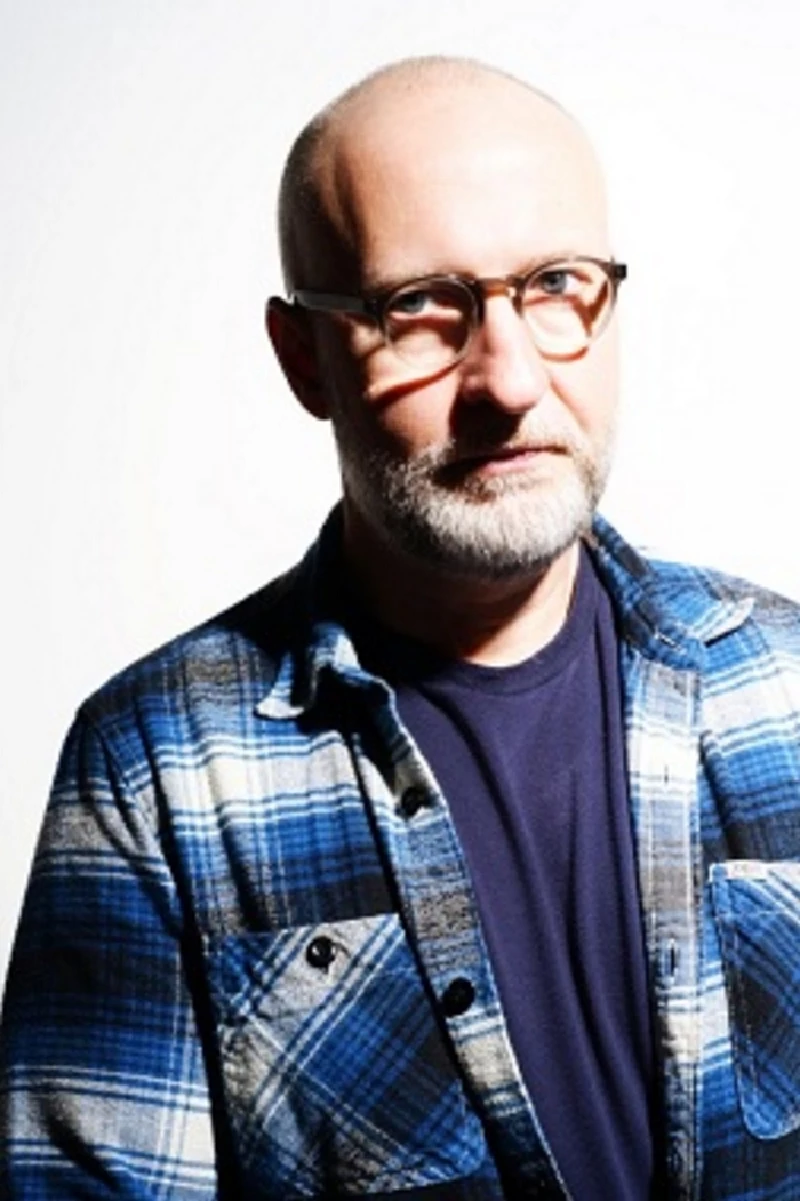
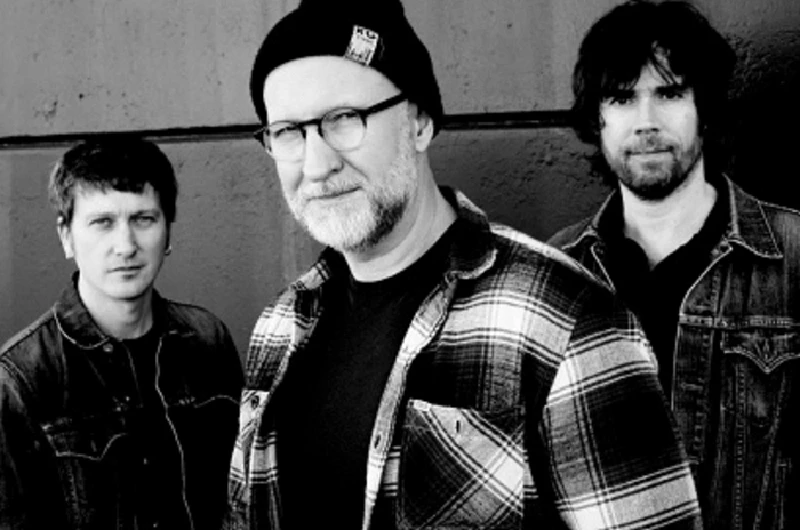
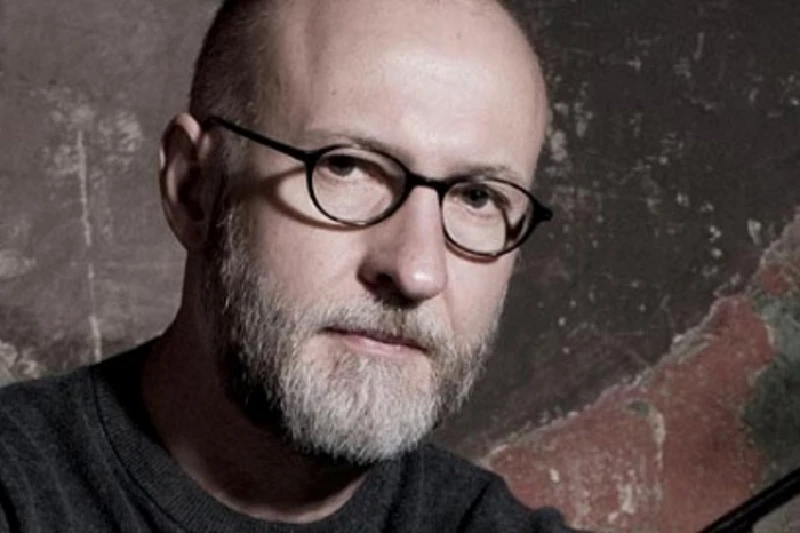
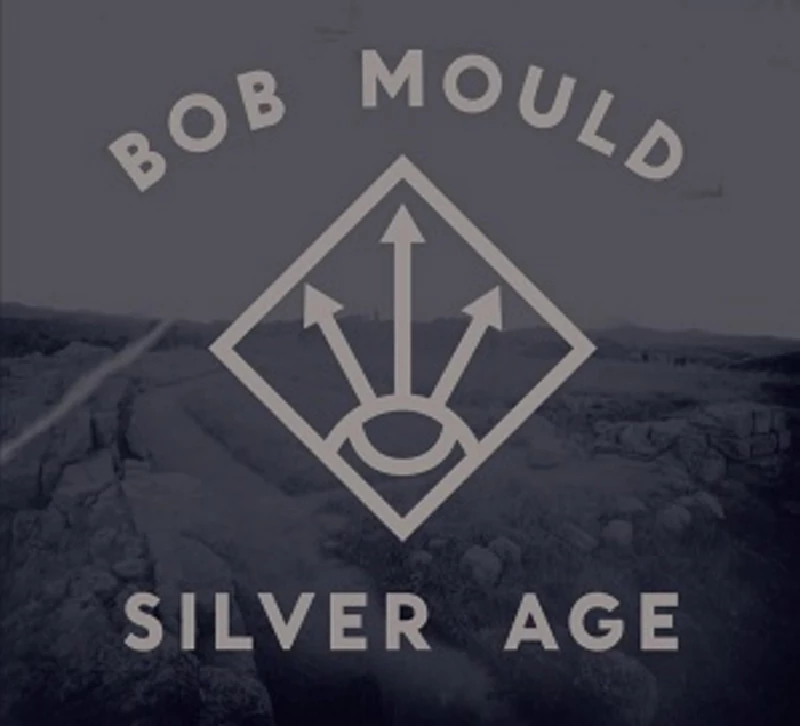
live reviews |
|
Brooklyn Bowl, O2 Academy, London, 11/2/2016 |
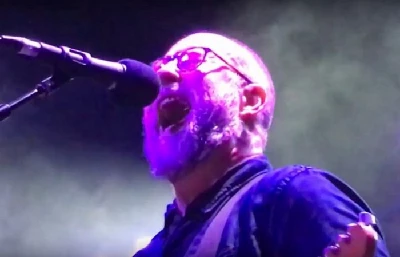
|
| Dastardly suffers midlife crisis on way to see Bob Mould at the O2 in London before Mould heals him with his deafening sonic euphoria. |
| KOKO, London, 27/5/2008 |
features |
|
Ten Songs That Made Me Love... (2015) |
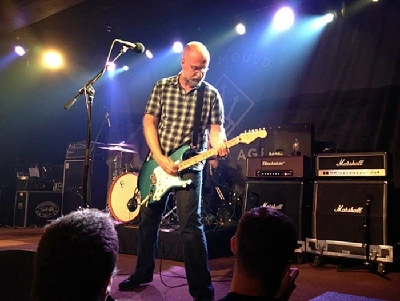
|
| Dastardly writes about his favourite songs by solo artist and ex-Husker Du and Sugar front man Bob Mould in 'Ten Songs That Made Me Love...' |
soundcloud
reviews |
|
Beauty and Ruin (2014) |
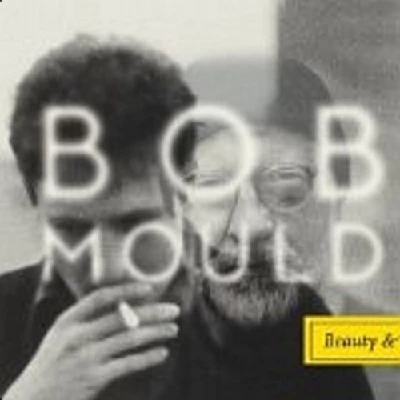
|
| Fantastic return to form on new solo album from former Husker Du and Sugar front man, Bob Mould |
| Silver Age (2012) |
| District Line (2008) |
most viewed articles
current edition
Carl Ewens - David Bowie 1964 to 1982 On Track: Every Album, Every SongArmory Show - Interview with Richard Jobson
John McKay - Interview
Colin Blunstone - Thalia Hall, Chicago, 16/7/2025
Bathers - Photoscapes 1
Billie Eilish - O2 Arena, London, 10/7/2025
Loft - Interview
Visor Fest - Valencia, Spain, 26/9/2025...27/9/2025
Sir Tim Rice - Interview
Robert Forster - Interview
previous editions
Manic Street Preachers - (Gig of a Lifetime) Millennium Stadium, Cardiff, December 1999Heavenly - P.U.N.K. Girl EP
Beautiful South - Ten Songs That Made Me Love...
Peter Perrett - In Dreams Begin Responsibilities Interview Part One
Boomtown Rats - Ten Songs That Made Me Love....
Oasis - Oasis, Earl's Court, London, 1995
Coldplay - Wembley Arena. London, 16/8/2022
Prolapse - Interview
Trudie Myerscough-Harris - Interview
Pixies - Ten Songs That Made Me Love...
most viewed reviews
current edition
Davey Woodward - Mumbo in the JumboSick Man of Europe - The Sick Man of Europe
Lucy Spraggan - Other Sides of the Moon
Amy Macdonald - Is This What You've Been Waiting For?
Suzanne Vega - Flying With Angels
Blueboy - 2
Bush - I Beat Loneliness
Phew, Erika Kobayashi,, Dieter Moebius - Radium Girls
Alice Cooper - The Revenge of Alice Cooper
Cynthia Erivo - I Forgive You
related articles |
|
Husker Du: Profile (2017 |
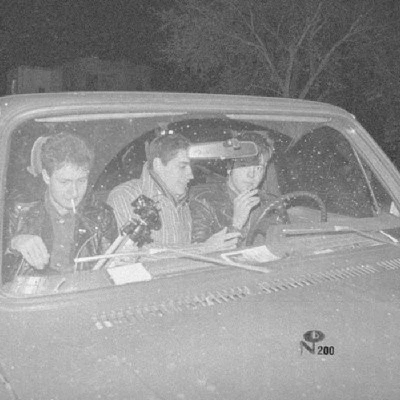
|
| Dastardly joins the Time Team crew on a dig through the archive of US punk/alt.rock icons Husker Du with 'Savage Young Du', a new three CD box set. |
Pennyblackmusic Regular Contributors
Adrian Janes
Amanda J. Window
Andrew Twambley
Anthony Dhanendran
Benjamin Howarth
Cila Warncke
Daniel Cressey
Darren Aston
Dastardly
Dave Goodwin
Denzil Watson
Dominic B. Simpson
Eoghan Lyng
Fiona Hutchings
Harry Sherriff
Helen Tipping
Jamie Rowland
John Clarkson
Julie Cruickshank
Kimberly Bright
Lisa Torem
Maarten Schiethart